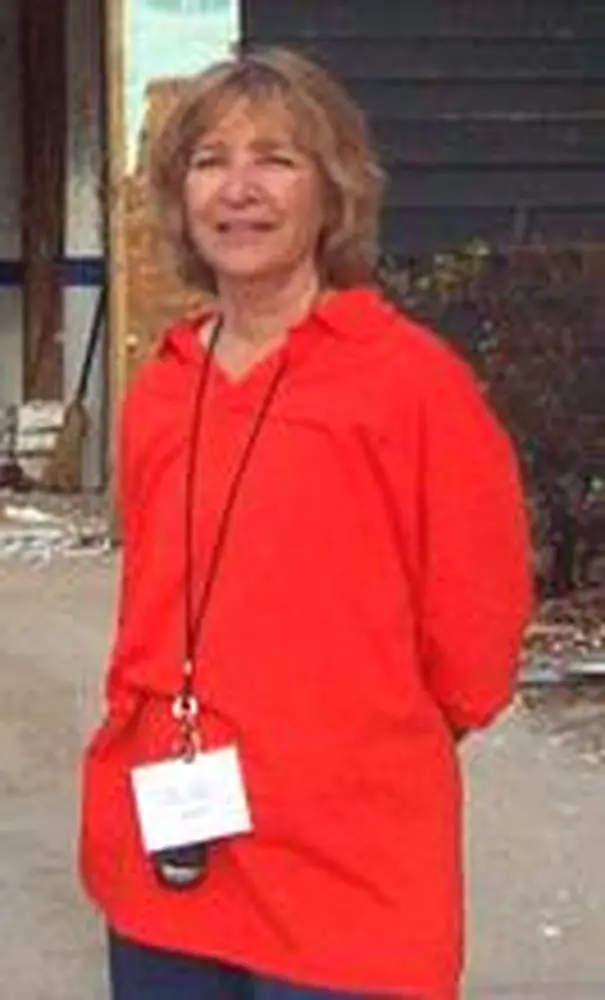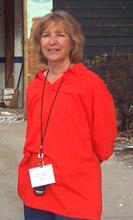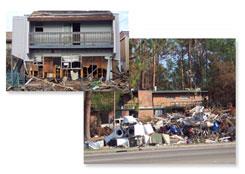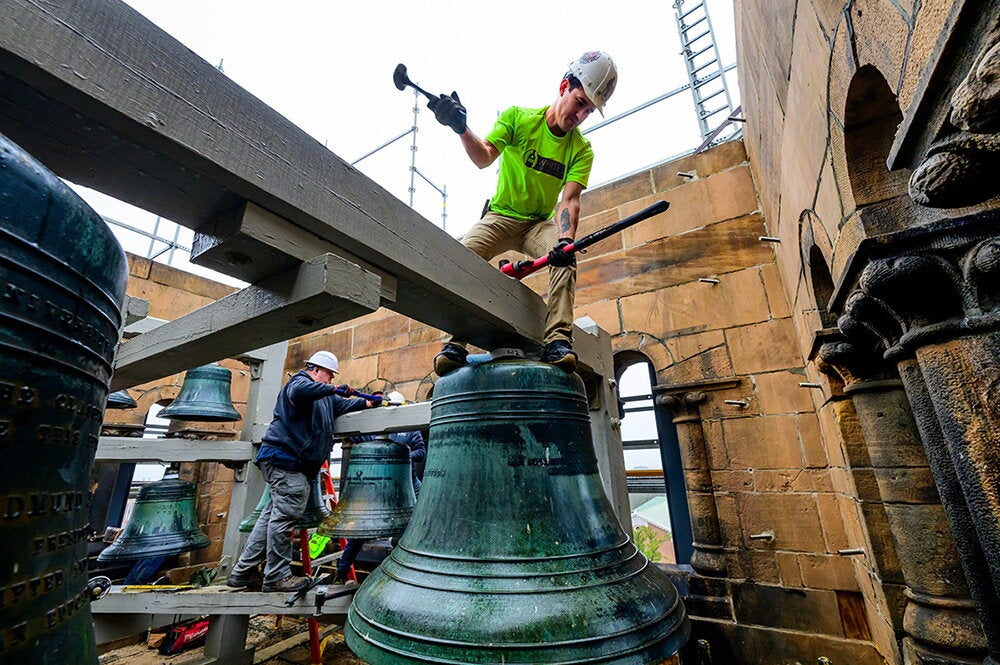

September 26, 2005
I feel moved to respond to the American Counseling Association's request for therapists to travel to New Orleans to counsel storm victims. Besides having practiced psychology for 25 years, I am a flood victim myself. While vacationing in 1989, a broken pipe sent 173,000 gallons of water coursing through my home, reducing my residence, therapy offices, and all of my possessions to rubble. After considerable wailing and gnashing of teeth, I picked up the soggy strands of my life and wove a new one. I want to share my message of hope with others. As a first responder for the Substance Abuse and Mental Health Services Administration, my expenses will be paid. I will receive a small stipend for working 12 hours per day, seven days per week during the two-week deployment.
Later, as I drive my rental car through mile after mile of devastated neighborhoods en route to the hotel, the 40-foot heaps of household debris lining the curbs remind me of my own losses. I grieve once again for the cherished keepsakes that held my memories: my photo albums, my grandmother's handmade quilts, my childhood scrapbooks. As tears trickle down my cheeks, I wonder: Can anyone truly recover from such devastation?
September 29, 2005

At the orientation meeting, the psychiatrists, psychologists, and counselors on my team receive a crash course in counseling trauma victims. Our goal is to relieve suffering and prevent chronic problems with post-traumatic stress. Because the stigma of counseling may deter victims from seeking help, we are to wander our assigned shelter, strike up casual conversations, ease into the subject of the flood, and talk with those who are receptive. The best medicine for human suffering, our trainers remind us, is compassionate listening. We are told to pay particular attention to the shelter staff and volunteers, who are also candidates for stress-related problems and burnout. Never has the U.S. Red Cross attempted to help so many victims for so long, and we should urge the workers to take care of themselves.
October 1, 2005
While driving to the Slidell shelter on the north shore of Lake Ponchatrain, I consider what might have helped me after my flood. When I was dazed and grief-stricken, friends encouraged me to look on the bright side, saying, "You only lost material objects. You still have your youth and health. With all that insurance money, the flood could be a blessing in disguise." No one seemed to grasp that my ruined keepsakes were irreplaceable links to my past; my treasured heirlooms were meant to connect me to the future. Without a home or job, I felt vulnerable, rootless, and afraid. Suggesting that I should feel grateful made me feel guilty, greedy, grudging, and terribly alone. I am determined not to resort to handing out homilies.
The Slidell Convention Center looks like a medium-sized sports stadium. The bright exterior paint seems friendly and welcoming, but inside the bare concrete floors and cinderblock walls have a cold, forbidding feeling. In fact, it is cold. Haggard residents shiver in the overly air-conditioned foyer and in the arena, where 200 narrow cots are arranged elbow to elbow. Folding tables in the center form a makeshift cafeteria. Lunch is canned beans, instant mashed potatoes, and Doritos.
When people see my day-glow orange, government-issued T-shirt, I am deluged with pleas for help: "I am so stressed. Do you have a few minutes?" "I'm so depressed. Can you talk to me?" "I can't sleep...can't eat...can't stop crying. Can you help me?" The Red Cross volunteers are bone-weary from exhaustion after working long shifts and trying to sleep on cots in a crowded hallway. Computer-controlled lights bore into their eyes 24-7, and the sound of industrial-strength toilets flushing all night keep them awake. Talking helps drain off a lot of pent-up tension, and they visibly relax. When I affirm their tremendous sacrifice to help others, they lighten and brighten. They welcome my offer to visit with especially troubled and troublesome residents.
The evacuees' numbness dissipates as they recount their traumas. They shake, sob, and sound terrified while describing their confusion and terror during the evacuation; their helplessness and anxiety while waiting to learn the fate of their homes, families, and friends; their grief over lost loved ones, property, and jobs; their frustration with the bureaucratic chaos. Everyone is panicked by George Bush's announced intention to have the shelters close October 15. An elderly woman sobs, "Would he really put us out on the street?"
Although I confine myself to listening, at the conclusion of each conversation, everyone feels more equal to the challenges that lie ahead. They lavish me with hugs and gratitude and call me their angel. Confiding in a compassionate, caring listener is a potent stress-reliever and antidepressant.
October 2-13, 2005
How could I have dared to liken my suffering to the evacuees'? I didn't spend days on a rooftop watching corpses float by while surging waters threatened to engulf me. I didn't fear for the fate of missing relatives and friends while stranded in a far-off city. I wasn't threatened with having to live on the street. I had youth, health, and enough money to start over. Telephones and basic services still functioned, and help was a phone call away. I wasn't adrift in a broken world, immersed in an endless sea of grief and mourning.
Despite all the horror stories, I end each day feeling upbeat and inspired. Contained in each victim's tragic tale is the heroic story of a survivor. Neighbors risked their lives to save one another from raging waters and rooftops. People banned together to form surrogate families. Strangers opened their hearts and homes to evacuees. Even foreigners sent prayers and cash. The old, infirm, and destitute prove that life's sourest lemons can be swallowed with dignity and grace.
October 15, 2005
On returning home, I am exhausted but at peace. Thankfully, shelter residents were not ousted en masse. Their struggles will continue for months or even years, but at least they still have a roof over their heads.
It seems ironic that as a result of my personal tragedy, I was drawn to a place where I learned powerful lessons about human courage, strength, love, and compassion. The chord of grudging grief that bound me to the past has finally been severed.
The unanticipated bonus of helping others was the help I received. At last I am counting my blessings.
Linda Sonna received her AB in teaching of Spanish in 1971, and her MS and PhD in educational psychology and counseling psychology from the University of Illinois in 1975 and 1977, respectively.


